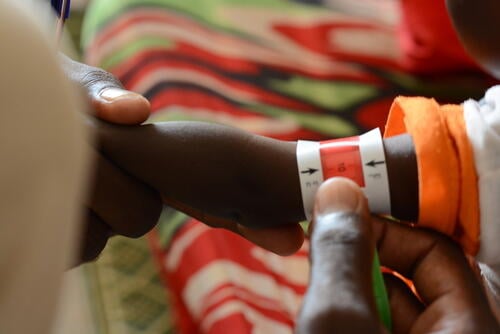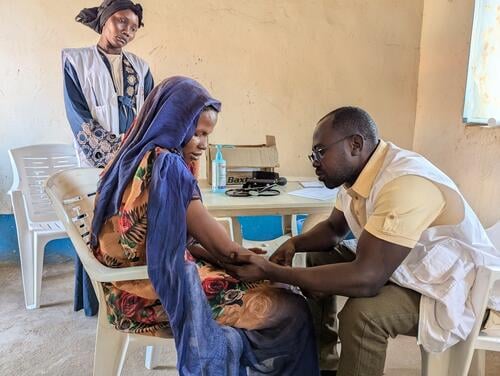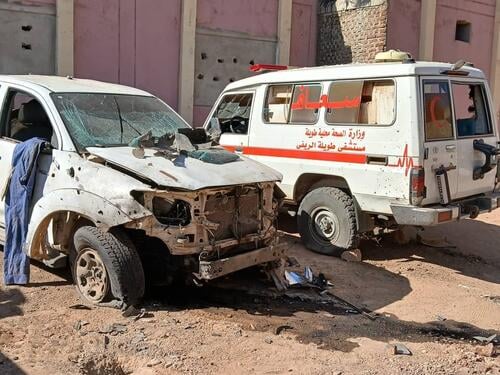- We were forced to stop outpatient care for 5,000 children with acute malnutrition living in Zamzam camp for displaced people in Sudan at the end of September.
- Warring parties have blocked the delivery of food, medicines, and supplies to Zamzam camp for months.
- All parties to the conflict and their allies must do everything to facilitate the delivery of aid to Zamzam camp.
Médecins Sans Frontières (MSF) has been forced to stop outpatient treatment for 5,000 children with acute malnutrition in Zamzam displacement camp in North Darfur, Sudan, because the warring parties have blocked deliveries of food, medicines, and other essential supplies for months.
As supplies ran low at the end of September, MSF was forced to stop care for 5,000 children on an outpatient basis, including 2,900 children with severe acute malnutrition. Only MSF's 80-bed hospital remains functioning in the camp to treat children at the greatest risk of dying.
“There is an urgent need for a massive supply of nutritional products and food to help people, it is currently a catastrophic situation,” says Michel-Olivier Lacharité, MSF’s head of emergency operations. “MSF is calling on the various stakeholders, the governments, the allies of the parties to the conflict, the Rapid Support Forces, the Sudanese Armed Forces and the Joint Forces, to facilitate humanitarian aid delivery to the camp.”
MSF is calling on the various stakeholders, the governments, the allies of the parties to the conflict, the Rapid Support Forces, the Sudanese Armed Forces and the Joint Forces, to facilitate humanitarian aid delivery to the camp.Michel-Olivier Lacharité, MSF’s head of emergency operations
Some limited supplies have arrived in recent weeks, including medical supplies that MSF was able to transport, but the quantities remain far too low to meet the needs of people suffering from malnutrition in Zamzam camp, which has a population of approximately 450,000.
The crisis has attracted broader international attention as the IPC Famine Review Committee concluded in August that a famine was underway in Zamzam camp. MSF’s own malnutrition assessments found that 30 percent of children were malnourished in multiple surveys earlier this year, estimating that a child was dying of causes linked to malnutrition every two hours on average. As the current crisis also limits MSF's ability to collect new data, the current rate of death among children is not known.
“In the last few days, we've seen some positive signs, with trucks arriving after months of almost complete blockade around the camp. However, these quantities are insufficient,” says Lacharité. “These are positive signs, and we can see that the parties to the conflict recognise the seriousness of the situation and are starting to let trucks arrive.
“If we are to have a massive response, the aid agencies will also have to significantly step up their efforts and all diplomatic stakeholders negotiating with the parties to the conflict will have to convince them to ensure that this delivery continues over the coming months,” he says.
For example, providing a month's worth of emergency food rations (around 500 calories a day per person) to the 450,000 people in Zamzam represents around 2,000 tons of rations. It would take 100 trucks a month to deliver them.






